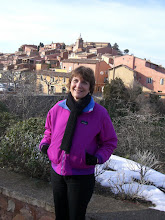
Since the early 1990s there has been a lot of talk about the so-called “French paradox," a term coined by scientist Serge Renaud in Bordeaux. What is paradoxical is that the average French person consumes much more butter, cheese, cream, and pork than an American, but that the incidence of death from coronary heart disease is much lower in France. Research for awhile pointed to the consumption of red wine and, more recently, of any type of alcoholic beverage as the main reason for this inconsistency. And while many of us would love for a nice glass of Burgundy to solve any potential problems with our arteries, people who drink more than in France— in countries like Luxembourg and Germany—don’t reap the same health benefits. But what if the answer to the riddle has little to do with food? What if something else is the basis for the cardiac fitness of the French? Obviously, what I offer here has no basis in scientific study, just musings on one possible explanation for the paradox.

A huge difference that I see between Americans and the French is that they are not as tied to the clock as we are. They have an expression l’heure, c’est l’heure (roughly, “on time is on time”), but, from what I can tell, hardly anyone abides by it! I often tell the story about a job interview I once had in the Lyon area. I needed to take a long bus ride to get to the place and showed up 45 minutes behind schedule. Naturally, I went into the office all apologetic, but the man interviewing me said that I wasn’t late! Now maybe that was unusual, especially in an employment situation, but we’ve seen the same scenario in other contexts time and time again. Merchants don’t rush to open their doors right on the dot, and the same is true at closing time.
 Another time-related issue has to do with dining out. When French people go out to eat, supper is the entertainment for the evening. Leisure time is not on a hectic schedule, as it is for many Americans. Many of us rush to the restaurant, and then dash off to see a play or a movie afterwards. Here, hours are spent leisurely enjoying a meal at the dinner table. In fact, a recent study showed that the French spend more time eating and sleeping than in any other nation in the world. Se la couler douce (“taking life easy”) doesn’t mean trying to squeeze as much activity as possible into the leisure time you have.
Another time-related issue has to do with dining out. When French people go out to eat, supper is the entertainment for the evening. Leisure time is not on a hectic schedule, as it is for many Americans. Many of us rush to the restaurant, and then dash off to see a play or a movie afterwards. Here, hours are spent leisurely enjoying a meal at the dinner table. In fact, a recent study showed that the French spend more time eating and sleeping than in any other nation in the world. Se la couler douce (“taking life easy”) doesn’t mean trying to squeeze as much activity as possible into the leisure time you have.I’ve written about greetings before on this blog, but can’t resist mentioning again that people here take the time to acknowledge others. The cashiers at Shopi, our town supermarket, greet each of their customers, speak to them, and help them if necessary, no matter how long the line is, which can be frustrating for us impatient types! On buses, too, we’ve seen the driver say bonjour and au revoir to every single person on board, even if twenty or so people are all getting off at the same stop. At any rate, whatever the answer is to the French paradox, I’m convinced that it does not just boil down to one thing. I believe it is a lifestyle, an attitude toward living, as well as the fruits, vegetables, olive oil, and wine that they so like to consume.

No comments:
Post a Comment